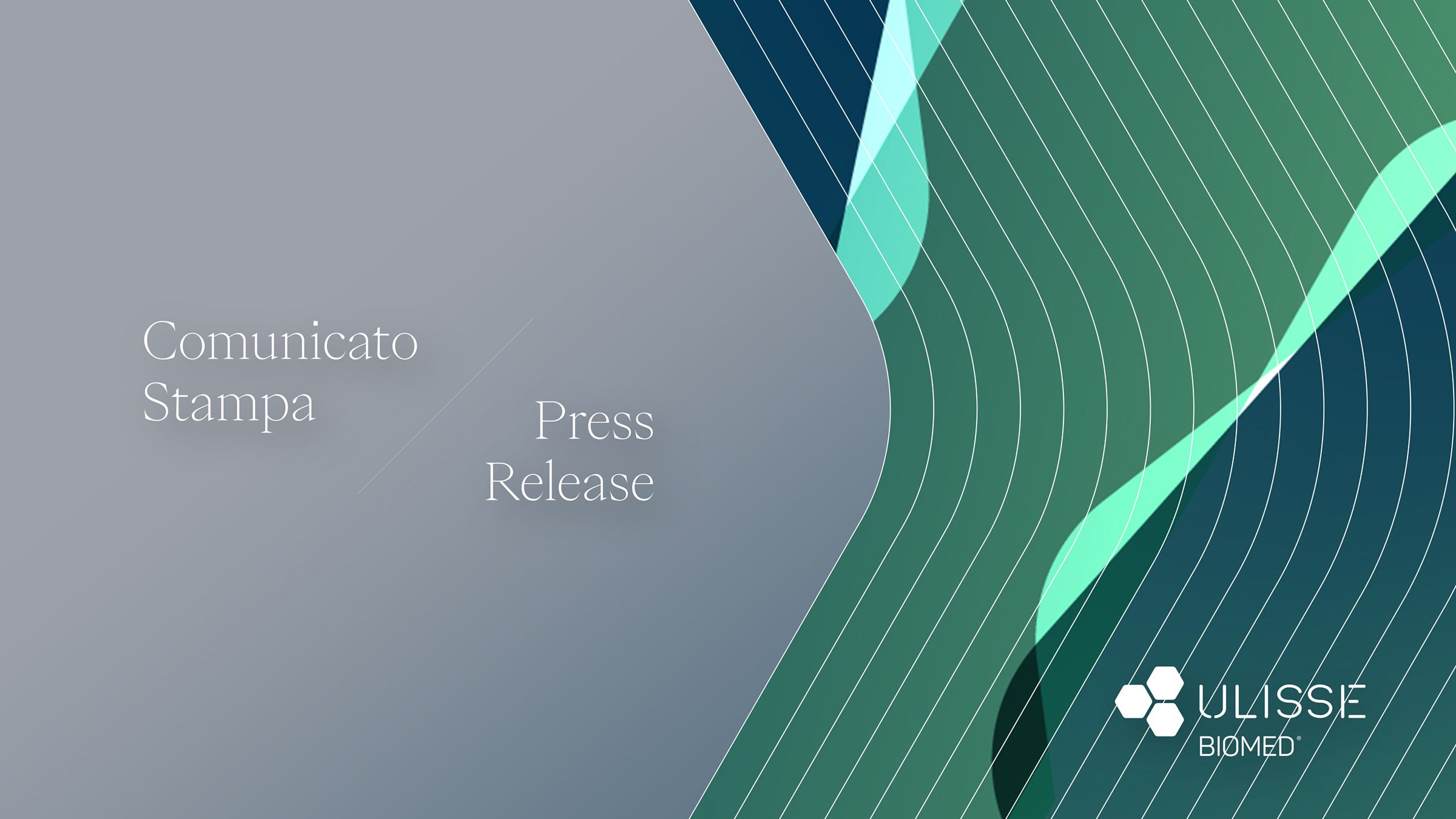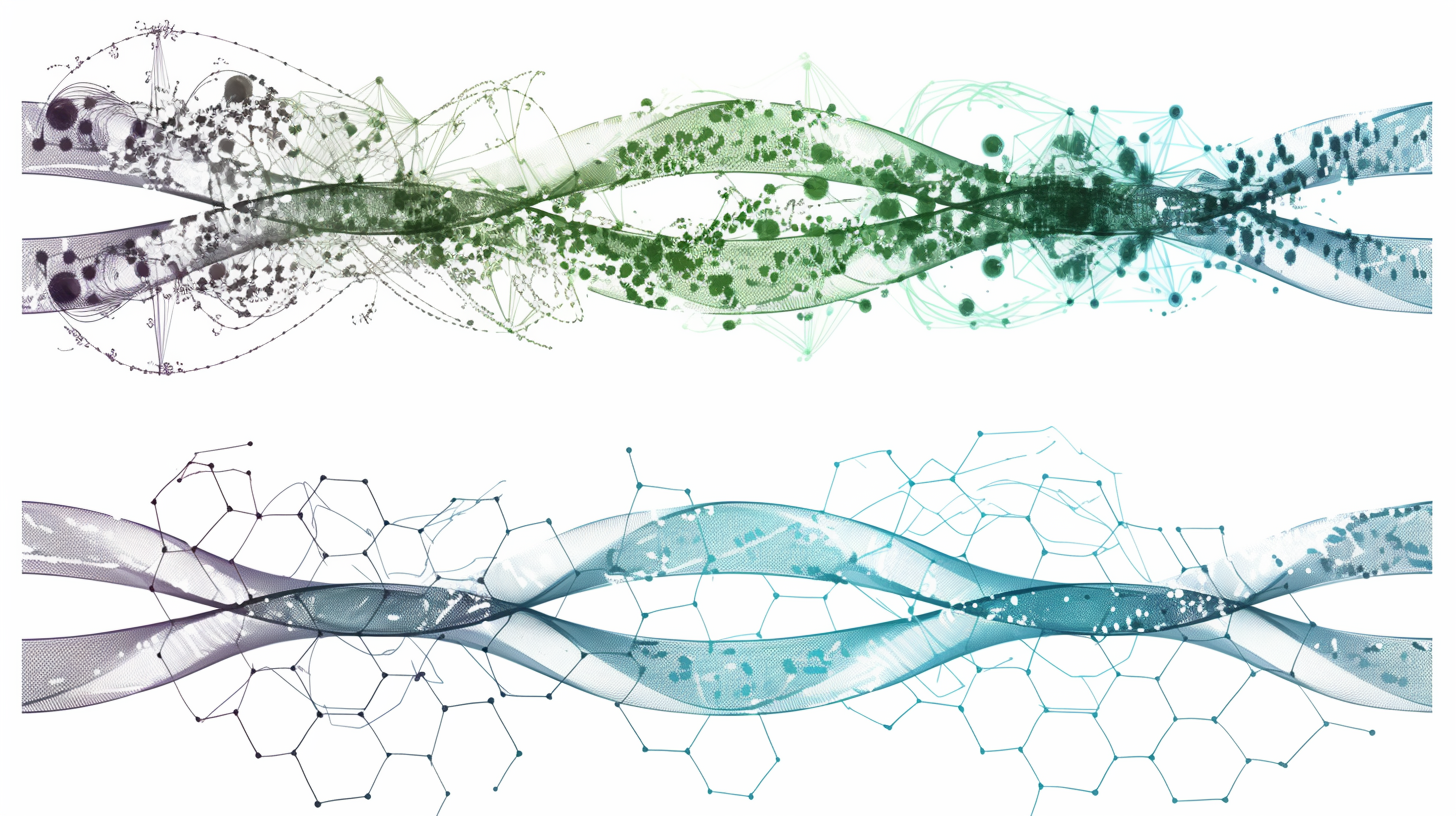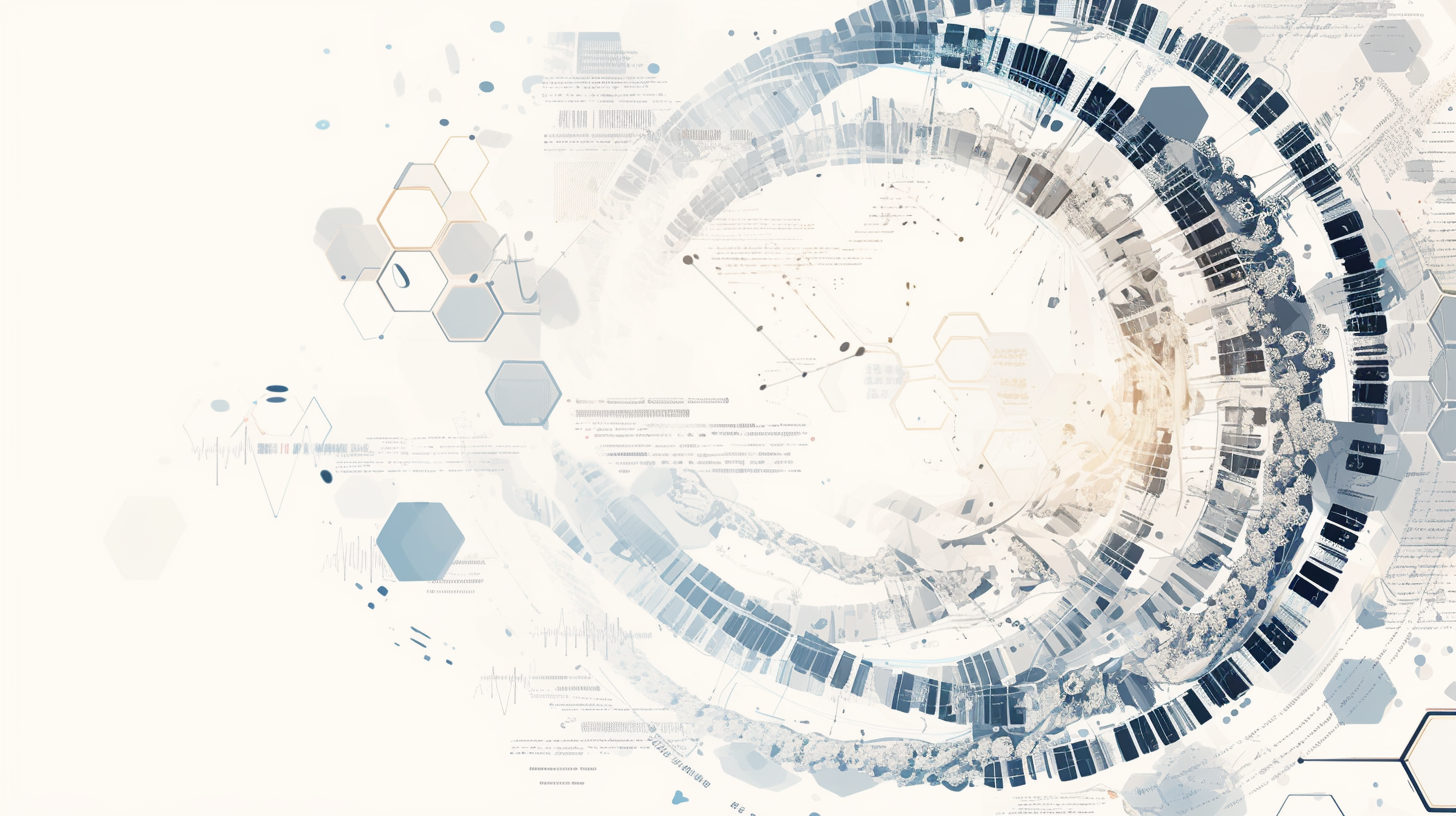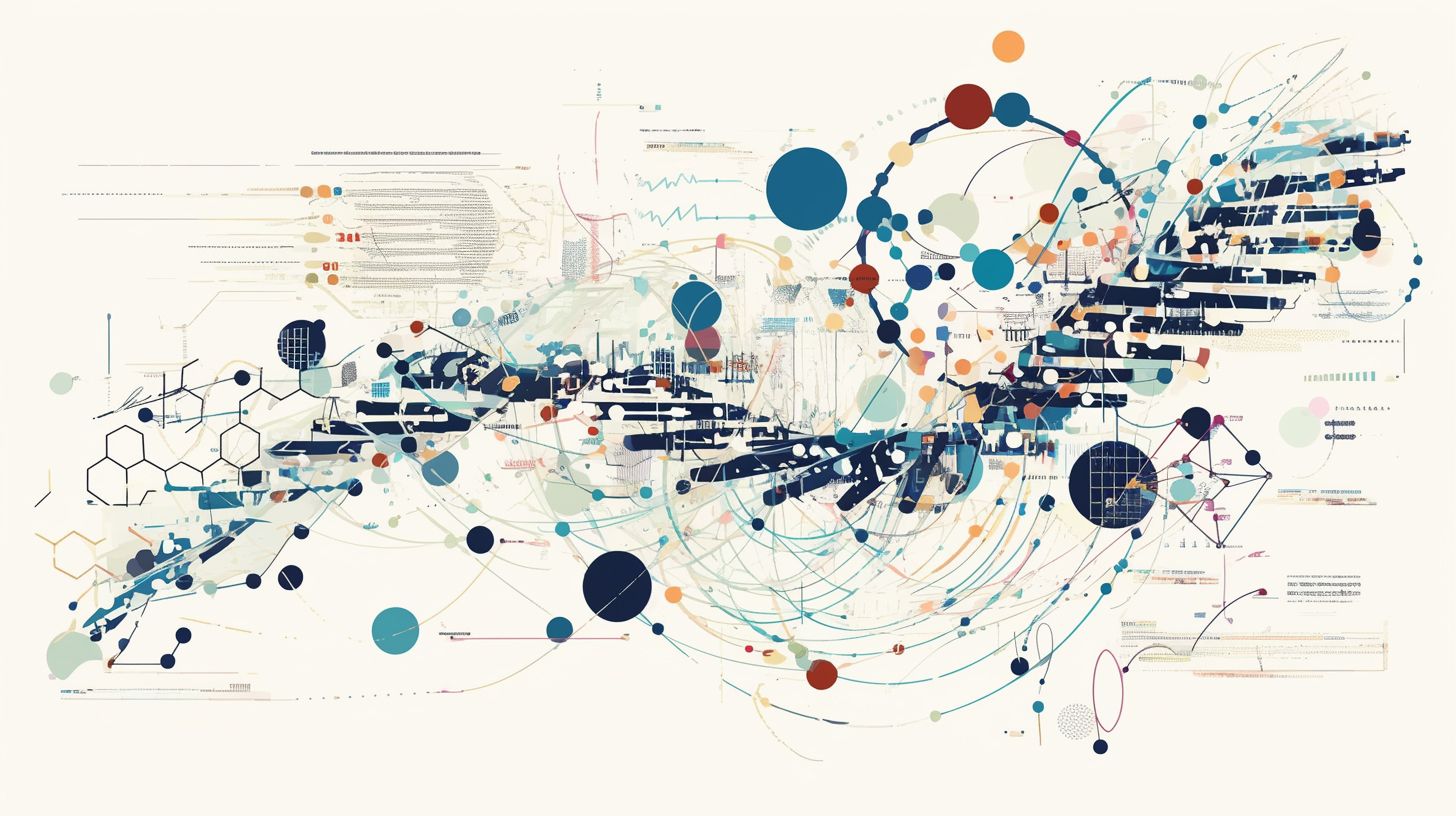Biotech Innovation and Diagnostics
The Ulisse Biomed Ecosystem: the Hyris System™ modular diagnostic platform
How an integrated ecosystem of portable devices, cloud software and innovative reagents is decentralising molecular diagnostics in clinical, nutraceutical and industrial settings
Abstract
Ulisse Biomed has developed an innovative diagnostic ecosystem centred on the Hyris System™ platform, designed to democratise genetics and health with a modular and scalable approach. The ecosystem includes portable devices (the bCUBE™ mini-labs, available in bCUBE, bCUBE3 and bCUBEplus versions), cloud software (the bAPP™ portal and data service), integration gateways (bGATE™) and proprietary reagents with high stability and multiplexing. Thanks to this vertical integration, Hyris System™ enables rapid and accurate molecular testing in any setting, from the patient's bedside to the farm field, with results available in real time on the cloud. The article examines how the Ulisse Biomed ecosystem supports three key sectors: Healthcare, where distributed diagnostics dramatically reduce response times and improve clinical outcomes; Agrifood & Nutraceuticals, where genetic testing in the field ensures authenticity and safety throughout the supply chain; and OEM Services, which enable partners and diagnostic kit developers to leverage the Hyris platform to expand their market and innovate with ease. An interview with Gabriele Salaris, Head of Marketing & Sales, delves into the strategic vision behind the ecosystem and future prospects, including interoperability, artificial intelligence and decentralisation of diagnostics. In addition, the article includes micro-quotes from Ulisse Biomed insiders and references to authoritative industry sources, providing a comprehensive and structured overview. ‘The need for a cold chain has always been a critical obstacle... this new approach does not require any cold chain, making the test fully deployable in the field,’ says Stefano Lo Priore, President of Ulisse Biomed, highlighting one of the distinctive advantages of proprietary reagents. Infographics and technical charts complete the picture, highlighting the concrete benefits (e.g., >60% reduction in emergency reporting time thanks to POCT) and the architecture of the ecosystem. The result is a unique integrated solution in the biotech landscape, professional yet accessible, which aims to decentralise molecular diagnostics while maintaining high standards of quality and compliance.
Snapshot
- qPCR (PCR quantitativa in real-time): DNA amplification technique that detects the amount of product generated in real time, allowing a genetic target to be quantified during the reaction. It is the gold standard for rapid and sensitive molecular diagnostics.
- Multiplexing: performing several analyses in parallel in a single test. In the PCR context, this means detecting several genetic targets simultaneously (e.g. panel with 4 respiratory viruses). It increases diagnostic efficiency, allowing complex tests in one step.
- Reagenti ambient-stabili: reagents formulated so as not to require refrigeration (cold chain). They can be stored at room temperature for months, simplifying field test logistics.
- Cloud diagnostics: management and analysis of diagnostic data on remote cloud servers. It allows real-time access to results from anywhere and the application of advanced algorithms (AI, data analytics) on large volumes of aggregated data.
- Interoperability: ability of different systems to communicate and operate together. In our context, the Hyris ecosystem is interoperable with both third-party tools (via bGATE) and external software (hospital LIS), enabling smooth integration into existing flows.
- Sagitta: Ulisse Biomed's proprietary technology platform for molecular diagnostics. It enables rapid and highly multiplexed PCR with high sensitivity, even without nucleic acid extraction.
- Decentralisation of diagnostics: transfer of tests and analyses from the central laboratory to decentralised locations (peripheral hospitals, clinics, production sites, etc.). This results in reduced response times and greater accessibility to diagnostic services.
1. An integrated and modular diagnostic ecosystem
The Ulisse Biomed ecosystem revolves around the Hyris System™ platform, designed to offer an end-to-end solution in molecular diagnostics. Unlike the traditional approach, where instruments, reagents and software often come from different suppliers, Ulisse Biomed controls and integrates all key components: hardware, software, chemistry and services. This vertical integration, the result of the synergy between Ulisse Biomed and Hyris Ltd (merged in 2023), provides a strategic advantage over fragmented solutions from other providers. The entire technology chain – from PCR amplification devices to the cloud for data analysis – is designed as a single, coherent, modular and scalable ecosystem.
Instrumentation: The hardware heart of the platform is the bCUBE™ family, miniaturised portable and connected qPCR devices the size of the palm of your hand (approximately 10x10x12 cm, weight ~1 kg). Despite its small size, bCUBE offers laboratory performance: fast and controlled thermal cycles, high-resolution melting curves (<0.05°C) and models with up to 4 optical channels for larger multiplex analyses. All models accept proprietary 16- or 36-well cartridges and can operate in parallel without limitation: a laboratory can run multiple bCUBE devices in a network simultaneously, increasing throughput linearly. All devices are certified to European IVDR and equivalent North American standards, having passed independent technical evaluations conducted by global top players. Furthermore, installation is plug-and-play: no calibration or complex infrastructure is required – just a power supply (110-220V auto-sensing) and a connection (Ethernet or Wi-Fi). The result is a “miniaturised high-performance laboratory” that can be deployed immediately wherever it is needed.
Software e Cloud: The system is coordinated by HYRIS bAPP™, a web/cloud application that acts as the platform's brain. Through bAPP, users can remotely control bCUBE devices (even via smartphone hotspots), set custom PCR protocols, monitor amplification progress in real time, and view results with automatic interpretation. The bAPP portal is integrated with the proprietary cloud database, where all data and results are securely stored and accessible in real time from anywhere. Cloud integration also enables advanced features: machine learning and artificial intelligence algorithms support the interpretation of complex outputs (e.g., recognition of multiple pathogens from amplification curves). In addition, the system facilitates interoperability with existing infrastructure: the HYRIS bGATE™ device acts as a gateway to connect third-party PCR instruments to the Hyris platform. A laboratory can therefore integrate data generated by other equipment (e.g. thermocyclers from different manufacturers) into a single cloud repository and control everything via bAPP. The bGATE gateway enables centralised workflows (e.g. unified reporting) while using heterogeneous hardware, thanks also to interfacing options with hospital LIS/LIMS systems. In practice, Hyris System™ acts as an open platform: on the one hand, it offers optimised proprietary devices, and on the other, it can seamlessly accommodate external reagents and instruments (subject to qualification).
Reagents and diagnostic kits: Ulisse Biomed brings with it the Sagitta chemical platform, based on proprietary technologies that enable high-sensitivity real-time PCR and deep multiplexing (detecting multiple targets simultaneously). Sagitta kits are designed to work on raw matrices without the need for nucleic acid extraction, greatly simplifying sample preparation. Another reagent technology with a strong competitive advantage is the ambient-stable formulation of reagents: several Ulisse solutions use lyophilised reagents and pre-filled cartridges that guarantee stability at room temperature. This means that the cold chain is no longer essential for transporting and storing tests – a key consideration for operating in decentralised settings and emerging countries. ‘The need for a cold chain has always been a critical obstacle to distributing tests in remote areas. After months of work, we have found the solution: the new cartridge test requires no refrigeration, making it 100% deployable in the field,’ emphasises Stefano Lo Priore, President of Ulisse Biomed. Ulisse Biomed has developed a range of diagnostic kits in-house (from viral infections to microbiome tests) and has also entered into partnerships with selected partners and experts in specific application areas, such as Generon for the Food&Feed sector and Biomol Laboratories for personalised medicine and oncohaematology.
Below, we explore how this integrated platform is applied in Ulisse Biomed's three main sectors: Healthcare, Agrifood & Nutraceuticals, and OEM Services.
2. Healthcare: rapid molecular diagnosis wherever needed
In healthcare and clinical settings, the Hyris System™ ecosystem enables a decentralised diagnostic model that complements traditional laboratories. This responds to a global need: the COVID-19 pandemic has highlighted the limitations of an approach focused solely on centralised laboratories, with long turnaround times and logistical bottlenecks. Bringing diagnostic testing closer to the patient – in the emergency room, ward or in the community – enables much faster treatment decisions. Clinical studies show that distributed testing dramatically reduces reporting times compared to the centralised laboratory process. This speed translates into timely intervention, immediate isolation of infectious cases, early targeted treatment and therefore better clinical outcomes. It is no coincidence that the recognised benefits of distributed molecular diagnostics include “rapid availability of results, reduced costs and improved patient outcomes”.
The Ulisse Biomed ecosystem has been designed specifically to maximise these benefits in healthcare. The bCUBE device is portable and can be used in decentralised facilities (such as small laboratories or field clinics). Once the sample has been inserted and the test started, the data is sent to the cloud in real time, allowing doctors to consult it immediately, even remotely. For example, a project funded by the Gates Foundation and in collaboration with Johns Hopkins University uses bCUBE to monitor the resistance of malaria strains to insecticides directly in the field, without having to send mosquitoes or samples to central laboratories. ‘This test can be performed directly in the field, thanks to the features of our Hyris System™ – a portable, distributed diagnostics suite with remote monitoring,’ explains Lorenzo Colombo, CTO of Ulisse Biomed, highlighting how the technology allows the laboratory to be taken where it is needed. Colombo adds that, as bCUBE is self-connected to the network, data is sent to the central laboratory for aggregate epidemiological analysis, enabling real-time surveillance of infectious diseases.
In addition to infectious diseases (where time is crucial to contain outbreaks), Hyris System can be used in screening and early diagnosis. Ulisse Biomed, for example, has developed an HPV test for the identification and genotyping of up to 30 strains of human papillomavirus with high and low oncogenic risk. Traditionally, these tests require centralised, well-equipped laboratories; thanks to the portability of bCUBE, HPV screening can be extended beyond traditional medium-sized central laboratories to small clinical centres or emerging countries, increasing diagnostic coverage. Careful clinical validation ensures that performance is comparable to that of large analysers: bCUBE has demonstrated analytical accuracy comparable to standard thermocyclers and compliance with international quality standards. For hospitals, this means being able to rely on mini PCR laboratories in every department without sacrificing reliability or regulatory compliance.
Another strength in the healthcare sector is ease of use. The bAPP interface guides the operator step by step, and assisted interpretation of results reduces dependence on highly specialised personnel. In scenarios such as emergency rooms, where patient turnover is high, systems such as Hyris System streamline the workflow.
From a connectivity perspective, all bCUBE devices in the field (both in hospitals and in the community) send data to a central hub. This opens up interesting scenarios for networked medicine: for example, a network of peripheral laboratories could carry out screening tests (COVID-19, influenza, etc.) on site and automatically share the results with the reference laboratory or health authorities for epidemiological surveillance. ‘Our devices support health surveillance for many other diseases and public health threats, especially in the most challenging situations,’ points out Nicola Basile, CEO of Ulisse Biomed. According to Basile, projects such as the one on malaria confirm the company's commitment to developing advanced biotech solutions for critical problems and teach us that ‘the benefits of this approach go beyond monitoring a single tropical disease: the pandemic has demonstrated the need to manage health emergencies more efficiently.’ In summary, in healthcare, the Ulisse Biomed ecosystem acts as a bridge between the laboratory and the patient, ensuring faster, more widespread and data-driven diagnoses without compromising on quality.
3. Agrifood & Nutraceutics: quality and genomic traceability in real time
In the Agrifood and Nutraceutical sector, the Hyris System™ ecosystem offers innovative solutions to guarantee quality, authenticity and safety throughout the food and natural product supply chain. In this context, DNA analysis is a powerful tool for authenticating botanical raw materials, detecting food fraud, monitoring pathogens in crops and verifying the presence of GMOs. Traditionally, such genetic tests require samples to be sent to specialised laboratories, which is time-consuming and costly. Ulisse Biomed, on the other hand, offers an on-site approach: bringing molecular analysis capabilities directly to the production or harvesting sites, thanks to the portability of bCUBE and the stability of the reagents.
A prime example is the partnership between Hyris and Indena S.p.A., a world leader in botanical extracts for pharmaceutical and nutraceutical use. Indena has integrated the bCUBE system into its plant genome identification protocol to ensure that the plant species used in its extracts are authentic and traceable. Previously, the company had to collect plant samples from harvesting areas (even in remote countries) and analyse them in its central laboratory in Milan to confirm their genetic identity – a complex and time-consuming process. Today, thanks to Hyris, Indena can perform DNA testing directly in the field, almost in real time and by virtually anyone. The results are shared immediately on the proprietary cloud platform, complete with geolocation, allowing precise traceability of the origin of each batch. ‘The Hyris platform offers the unique ability to perform comprehensive genetic analysis of biological samples in any context... it acts as a portable laboratory to deliver highly accurate results, reducing turnaround times compared to traditional methods,’ said an Indena manager commenting on the adoption of bCUBE. Indena has even acquired a stake in Hyris, securing privileged access to this technology for its industry.
The combined use of DNA analysis and a cloud platform raises the level of quality and safety in nutraceuticals. Each botanical extract or ingredient can be accompanied by a digital “genetic passport” that certifies its identity and purity, available to customers and regulatory bodies. This is particularly important in an industry where fraud and adulteration (e.g. substitution of herbs with less expensive species or contaminants) are real risks. By adopting genomic testing in the field, companies can isolate non-compliant batches before they even enter the production cycle. ‘Thanks to on-site DNA testing, Indena can guarantee the quality, traceability and authenticity of its ingredients... and now wants to enable its customers to experience the same level of certainty,’ reads Nutraceutical Business Review. With Hyris System, Indena's partners will also be able to independently verify the botanical identity of the supplies they receive using a bCUBE on site.
In addition to botanical authentication, the Ulisse Biomed ecosystem can also be used in food safety. Consider food producers who need to test for pathogens (Salmonella, Listeria, etc.) or toxins in raw materials: with bCUBE, they can perform rapid screening in-house, avoiding the sale of contaminated products. A recent collaboration announced by Ulisse Biomed is with Generon, an Italian company active in agri-food quality control systems. Generon has integrated Hyris System™ into its services, combining the device and cloud software with its own analysis kits to provide customers with a complete subscription package. This “Platform-as-a-Service” approach to food testing will ensure continuous monitoring in the field, with data uploaded to the cloud and automatic notifications in the event of contamination above the threshold. Similarly, in agriculture, the platform can be used to diagnose plant pathogens in crops directly in the field (e.g., identifying a plant virus in a plot, allowing targeted intervention before it spreads).
4. OEM & Services: an open platform for partners and developers
The third fundamental area of the Ulisse Biomed ecosystem concerns OEM services and B2B partnerships. In this field, Ulisse Biomed is not only a supplier of finished products, but also acts as a technological enabler for third-party companies (diagnostic, biotech, industrial) that want to exploit the Hyris platform for their own applications. Thanks to the flexibility of the system, there are various ways of collaborating:
- Co-development of diagnostic tests and menus
A partner (e.g., a biotech company with a proprietary biomarker) can develop a new custom kit that runs on the bCUBE, benefiting from the Ulisse infrastructure. Hyris System supports any gene amplification protocol – from qPCR to isothermal – so it can host a wide range of custom assays. If the partner already has its own reagents optimised for other instruments, it can easily bring them to the Hyris platform: bCUBE devices are compatible with standard laboratory assays, often with minimal protocol optimisation. The Ulisse scientific team offers support to quickly adapt and validate external kits on the system (in some cases within a few weeks). - White-label solutions and OEM integration
A manufacturer of diagnostic instruments or tests can incorporate Hyris System into its offering as an OEM solution. An example is the partnership with GrowBiGogh in the US: this company provides its customers (private laboratories, public clinics) with an integrated package combining Hyris System™ with test kits for the cannabis and plant health sectors. In practice, GrowBiGogh combines the bCUBE hardware and cloud software with its specialised reagents, also developed by Ulisse Biomed, to offer a turnkey service to cannabis analysis laboratories (potentially THC/CBD quantification tests or pathogen screening in crops). This allows GrowBiGogh to enter the field genetic testing market without having to develop a hardware/software system from scratch – it leverages a proven platform, reducing time-to-market and R&D costs. Ulisse Biomed, for its part, benefits from greater distribution of its devices in specialised application niches, with revenues from both the sale/rental of units and usage royalties (in fact, many agreements provide for a subscription + pay-per-use model based on the number of tests performed on the platform). - Data integration and cloud services
Through cloud APIs and the bGATE gateway, Ulisse Biomed can offer customised cloud services to OEM partners. For example, a laboratory equipment company could connect its automated instruments to the Ulisse cloud, giving customers a modern web interface to access results without having to develop a complex IT system in-house. Similarly, partners who manage networks of collection points or laboratories can use the platform to consolidate data from different devices into a single management dashboard. The fact that Hyris System is designed as a modular ecosystem with plug-in components (bCUBE, bGATE, etc.) greatly facilitates these integrations. In addition, cloud scalability allows you to potentially manage thousands of devices and millions of tests per year, adapting to the growth of your business partners.
There are numerous concrete benefits for OEM partners. On the one hand, being able to rely on compact and affordable PCR hardware (compared to traditional laboratory equipment) lowers the barriers to entry for new players in the diagnostics market. A company that previously only produced reagents, for example, can now offer a dedicated device for its kits thanks to Ulisse Biomed: the bCUBE becomes an integral part of their product, improving the user experience for the end customer (who does not have to purchase a third-party thermal cycler separately). As Hyris itself points out, ‘equipping kit providers with a device such as bCUBE allows them to offer a very attractive proposition to customers and, above all, to significantly expand their customer base.’ Ulisse Biomed's open model allows partners to reach new segments: kits integrated with Hyris can be used not only in large centres, but also in small laboratories or by end users who were previously inaccessible, thanks to their ease of use and low investment requirements. In a market where decentralisation of diagnostics is a growing trend, being able to offer portable and immediate solutions is a clear competitive advantage.
On the other hand, access to cloud data provides partners with valuable insights. A test developer who distributes their tests via the Hyris System platform can monitor how their kits are performing in the field in real time: volumes used, geographical areas of adoption, any trends in abnormal results, etc. This information, obtained in compliance with privacy and regulations, enables a continuous product improvement cycle and proactive customer support. For example, if bDATA notices that a certain laboratory often performs manual calibrations on a kit, the partner could offer additional training or optimisations. This creates a sort of digital loop that connects the manufacturer and the user, mediated by the cloud platform.
In summary, Ulisse Biomed, through Hyris System™, positions itself as a flexible technology partner: it offers modular components (hardware, software, reagents) that other companies can combine and brand as needed, creating new value-added diagnostic solutions. This B2B strategy amplifies the impact of the system well beyond Ulisse's own resources. As indicated in the business plans, agreements have already been signed in the first year after integration with various players (from food control to international distribution and the development of innovative IVD devices), proving the versatility of the ecosystem. The message to partners and investors is clear: instead of providing a single product, Ulisse Biomed has created an enabling platform on which to build multiple vertical applications, accelerating innovation in the field of decentralised diagnostics.

INTERVIEW
Gabriele Salaris, Head of Marketing & Sales, Ulisse Biomed
Q: Hyris System™ is defined as a “diagnostic ecosystem”. Can you explain what this means and what components make it a modular and scalable ecosystem?
A: Absolutely. When we talk about an ecosystem, we mean a set of elements – physical tools, software, chemical reagents, digital services – that work together to provide a complete solution. In the case of Hyris System™, the ecosystem includes our bCUBE portable PCR analysis devices, cloud software applications such as bAPP for managing tests and data, a line of proprietary reagent kits, and complementary services such as development and OEM. All these components are designed to be modular, meaning they can be combined according to needs. For example, a customer can start with one instrument and a few kits, and then grow the system by adding other modules – additional devices in parallel, new diagnostic panels, integration with their own databases – all without changing platforms. This is what scalability is all about: being able to start small, perhaps a district laboratory with a single bCUBE, and grow to a network with dozens of devices and hundreds of tests per day, while maintaining the same software infrastructure. The basic idea is to offer an integrated platform where every piece talks to the others seamlessly. This means that users do not have to turn to five different suppliers for PCR machines, reagents, analysis software, cloud services, etc., but find everything in a single, coherent system that can be expanded over time. Alternatively, a central laboratory can dedicate a low-volume analysis line by taking advantage of the modularity and scalability of the Hyris System, without compromising existing laboratory workflows and protocols.
Q: Your target market ranges from clinical diagnostics to nutraceuticals to industrial OEM. How do you manage to address such diverse needs with a single platform?
A: That's right, the use cases are very diverse – from hospital laboratories looking for rapid reporting of infections, to nutraceutical companies wanting to certify the identity of a medicinal plant, to OEM partners who may integrate our technology into their own products. The beauty of the Hyris System is that it was designed from the outset with a multi-sector approach. The key is versatility: our platform performs nucleic acid analysis, and DNA/RNA is a universal language whether you are looking for a flu virus in a swab or checking the genetic code of Arabica coffee. So, the same bCUBE device can perform a clinical test, then a food test, then a veterinary test, simply by changing the reagent kit and protocol loaded onto bAPP. On the software side, we have designed bAPP and bDATA with configurable features: for example, you can activate specific modules for agri-food traceability, such as linking GPS coordinates to field tests, which is useful for those who carry out checks on raw materials. Or, for clinical customers, we have ensured compliance with health data privacy and security requirements. In short, the technological base is common, but through the software and services we are able to customise the experience for each sector. In addition, the business model is flexible: some customers purchase the instrument and kits, such as clinics, while others prefer an all-inclusive subscription service – for example, food companies that want X analyses per month without having to deal with technical details. In these cases, we offer tailor-made “platform-as-a-service” formulas. In short, a single platform, but customised in detail to meet different needs. It's like an operating system that can run different applications depending on the user.
Q: Let's talk about decentralisation in diagnostics. How does Hyris System facilitate this process and what are the benefits for laboratories and patients?
A: Decentralising diagnostics means bringing testing closer to where it is needed, reducing dependence on large centralised laboratories. Hyris System was practically created for this purpose. Our bCUBE devices are compact and portable, so you can place them outside the traditional laboratory: in a hospital ward, in a doctor's office, but also in a container at the border for veterinary checks, anywhere. They also run on batteries or a small inverter, so we have literally seen them operating in the middle of the African jungle as well as in a mobile clinic. This brings a huge advantage: reduced response times. In a clinical setting, performing a molecular test on site means getting a result in perhaps 60 minutes instead of waiting 24-48 hours for the results from the central laboratory, with the sample travelling and so on. Another advantage is that we lighten the load on large laboratories, reserving them for more complex tests, while routine or urgent tests can be handled locally. And then there is the issue of geographical accessibility: decentralisation means being able to offer advanced diagnostics even in remote areas or countries with limited resources, where certain laboratory services may not even exist. With our platform and cloud connectivity, the sample no longer has to move: the data moves. Finally, decentralisation improves the patient experience.
Q: The platform integrates cloud solutions and artificial intelligence algorithms. What specific functions do they perform and how do they make diagnostics smarter?
A: Artificial intelligence in our platform operates mainly on two levels. The first is the interpretation of results. In advanced molecular tests, such as multiplexes with many targets, the raw output is amplification curves and fluorescence numbers. We have developed algorithms that analyse these curves in real time and immediately provide an interpreted report – for example, “Sample POSITIVE for pathogen X, NEGATIVE for Y, internal control valid”. In practice, AI automatically performs the analysis that an experienced biologist would do by eye, recognising patterns in the curves and cross-referencing data from various channels. This reduces errors and, above all, helps when the operator does not have much experience, because the software guides them in the interpretation. The second level is more advanced: we are talking about data analytics at the test population level. With a cloud platform that collects a huge amount of test data (anonymised and aggregated, of course), we can apply machine learning algorithms to identify trends or anomalies. For example, AI could alert a laboratory that there has been an unusual spike in positivity for a certain strain of influenza in a certain area over the last week – an early sign of an outbreak. Or, in an industrial setting, it could correlate test results with production batches to help trace the source of contamination. In short, the cloud allows us to move from the level of individual tests to the level of diagnostic big data, and AI is the only way to extract value from this big data in real time. From the user's perspective, much of this work is “under the hood”: what they see is that the system learns and becomes more efficient as it is used. A concrete example: our interpretation algorithms are periodically re-trained with new data, so they continuously improve their accuracy and ability to handle edge cases. Ultimately, artificial intelligence makes our platform smarter, more proactive and more reliable, contributing to the ultimate goal of speeding up and automating diagnostics without compromising quality.
Q: In a scenario where competition includes large diagnostic companies, what is your Unique Selling Proposition? What makes Ulisse Biomed and Hyris System special in the eyes of an institutional investor?
A: I would say that our USP – Unique Selling Proposition – lies precisely in vertical integration and agility. Let me explain: many large companies compete on a single aspect, such as who has the fastest laboratory machine, the most extensive test menu or the best management software. Ulisse Biomed, having been created from the union of different skills (Hyris hardware, Ulisse chemistry), can offer a complete package that is difficult to replicate. Hardware + software + reagents + cloud, all in a single platform. For an investor, this means that we have built a barrier to entry: it is not easy for a new competitor to put all these pieces of the puzzle together. Furthermore, we are asset-light and flexible. Our bCUBE has already been developed and patented; our proprietary reagents are an important IP asset (nine patent families cover our technology platforms, such as Sagitta for molecular diagnostics). Investors also appreciate the fact that we are riding clear macro trends: the decentralisation of diagnostics, the demand for this type of test has an estimated market growing at a significant CAGR – and the interest in digital/AI solutions in medtech. In addition, Ulisse Biomed is an innovative SME listed on the EGM (European Growth Market) but with the ambition of a multinational: we invest heavily in R&D but at the same time we are signing commercial agreements all over the world, from the United States to South Africa. Agility and global vision. An institutional investor looks at the numbers but also at the history: in just over a year since the Hyris-UBM integration, we have launched new product lines (e.g., the sexually transmitted infection test line, which leverages distribution synergies with the newly launched HPV line) and entered into partnerships in emerging sectors such as medical cannabis and personalised medicine. All this confirms that our ecosystem is not a static concept, but a living platform that is expanding into various markets. In summary: our USP is to offer integrated and decentralised molecular diagnostics 4.0, where others offer individual pieces. We believe that this approach, combined with the execution capabilities we are demonstrating, makes us an attractive opportunity for those investing in the future of healthcare and biotech.
Q: What is Ulisse Biomed's vision for the next 5 years?
A: We will continue to innovate, for example by integrating new markers such as the microbiome for personalised nutrition, or by further developing pre-analytical automation. But always with the underlying idea of distributed genetic testing: integrating the analyses already carried out by central laboratories with those performed in laboratories distributed throughout the territory. In practice, becoming a de facto standard for decentralised diagnostics at a global level.
Conclusions
In a post-pandemic world that requires greater healthcare resilience, the Ulisse Biomed ecosystem represents a paradigm shift: widespread, connected molecular diagnostics tailored to every context. The combination of pocket-sized hardware, innovative reagents and cloud intelligence effectively democratises advanced genetic testing – from the clinic to the farm field. With its dual biotech and digital soul, Ulisse Biomed is building a bridge between the laboratory and the real world, where knowledge becomes immediately actionable.
As stated by CEO Nicola Basile, this integrated approach is set to have an impact far beyond individual use cases: ‘The COVID-19 pandemic has demonstrated the need to manage outbreak preparedness more efficiently... Ulisse Biomed solutions support health surveillance for many other diseases and threats, especially in the most challenging situations.’ The Ulisse Biomed ecosystem embodies this vision of efficiency and proactivity: a widespread network of diagnostic sentinels across the territory, coordinated by collective intelligence in the cloud.
For laboratories and operators, it means being able to do more, in less time and closer to where it is needed. For partners and investors, it means participating in a scalable and diversified business model that generates value both as a technology provider and as a data service provider. The Hyris System™ ecosystem is modular in its components, but above all unified in its mission: to make molecular diagnostics accessible, timely and accurate – in a word, ultra-connected to the future of health.
Sources and bibliography
- Ulisse Biomed & Hyris – Comunicato integrazione (Hyris Ltd) – “nuova entità integrata, controllo dell’intera filiera e tecnologie complementari (hardware, software e reagenti)”hyris.nethyris.net
- Sito Hyris – bCUBE™ Product Page – “Dispositivo qPCR miniaturizzato 100x100x120 mm, ~1kg; alte prestazioni, 16/36 pozzetti, nessuna calibrazione richiesta, connesso via Ethernet/WiFi al cloud Hyris”hyris.nethyris.net
- Sito Hyris – bCUBE 3™ Product Page – “Versione a tre canali ottici (compatibile FAM, HEX, Cy5), scansione simultanea multi-target; design modulare invariato e stesso throughput (16/36)”hyris.nethyris.net
- Sito Hyris – Certificazioni bCUBE – “bCUBE certificato secondo standard Europei e Nord Americani; prestazioni testate da top player globali; design ultracompatto; connettività diretta a bAPP (cloud)”hyris.net
- Sito Hyris – Innovazione bCUBE – “Laboratorio miniaturizzato ad alte prestazioni; controllo termico auto-adattivo per cicli rapidi; melting ad alta risoluzione; consumo energetico 13 volte inferiore ai PCR standard”hyris.nethyris.net
- Sito Hyris – Modularità – “Throughput virtualmente illimitato eseguendo dispositivi in parallelo; nessuna installazione tecnica richiesta; plug-and-play con connessione cloud; gestione via bAPP, integrazione con bDATA”hyris.nethyris.net
- Sito Hyris – FAQ bCUBE – “bCUBE controllabile da qualsiasi dispositivo connesso (PC, tablet, smartphone); utilizzo offline via interfaccia bPANEL; alimentatore universale 110/220V (utilizzabile ovunque)”hyris.nethyris.net
- Sito Hyris – bAPP & bDATA – “Piattaforma cloud AI-driven: gestione operativa e insight; bAPP (web app) per controllare i dispositivi e creare protocolli; bDATA per archiviazione e analisi dati integrata”hyris.nethyris.net
- Sito Hyris – bGATE™ Product Page – “Gateway per integrare dati e risultati da strumenti di terze parti nel cloud bDATA, beneficiando delle funzionalità uniche della piattaforma (interpretazione automatica, integrazione LIS)”hyris.nethyris.net
- Sito Hyris – bGATE FAQ – “bGATE compatibile con molte piattaforme RT-PCR esistenti; dati e risultati accessibili tramite account bAPP, aggregati insieme a quelli dei bCUBE; opzioni di integrazione con LIS”hyris.nethyris.net
- Sito Ulisse Biomed – Sagitta Technology – “Piattaforma Sagitta (diagnostica molecolare): consente PCR in tempo reale, deep multiplexing, alta sensibilità, anche senza estrazione di acidi nucleici; 9 famiglie brevettuali coprono le tecnologie (Sagitta, NanoHybrid, Aptavir)”microbix.com
- Comunicato stampa Hyris – “Test malaria sul campo: pre-filled dried cartridges, reagenti liofilizzati stabili 6 mesi a T ambiente, niente cold chain; test eseguibile in-field (batteria) con trasmissione dati in tempo reale”hyris.nethyris.net
- Comunicato stampa Hyris – citazione Stefano Lo Priore – “cold chain critical roadblock in remote areas… new test does not require any cold chain, making it 100% field-deployable”hyris.net
- Studio Lancet (POC vs lab) – “POC molecular tests in ED: risultati disponibili 1h+ prima rispetto a laboratorio (es. 6 min vs 1h07, p<0.001), riducendo significativamente i tempi di gestione pazienti”pmc.ncbi.nlm.nih.gov
- Grand View Research 2024 – “Mercato globale diagnostica molecolare POC $8,17 mld (2023), CAGR ~2,5% 2024-30; vantaggi POC: risultati rapidi, costi ridotti, migliori outcomes; adozione in crescita in cliniche primarie per evitare ritardi di trasporto/preparazione campioni”grandviewresearch.comgrandviewresearch.com
- Grand View Research 2024 – “Trend innovativi: dispositivi POC più piccoli e portatili, diagnostica ovunque incluse aree remote; esempi 2023: piattaforme portatili RT-PCR 10 minuti (Curative) e Co-Dx PCR Home per test multiplex a domicilio”grandviewresearch.comgrandviewresearch.com
- Sito Hyris – Applicazioni – “Hyris System gestisce ogni tipo di tecnica di amplificazione e un’ampia gamma di applicazioni in diversi settori industriali. Sviluppiamo bKIT interni e qualifichiamo reagenti di terze parti su Hyris Marketplace per espandere le applicazioni disponibili”hyris.nethyris.net
- Sito Hyris – FAQ Applicazioni – “Hyris bKIT: set reagenti per sequenza specifica (patogeno, identificazione campione, ecc.); Hyris può sviluppare kit custom su richiesta per nuove applicazioni non ancora a catalogo; bCUBE compatibile con reagenti di laboratorio standard (piena apertura); partner reagents provider benvenuti (trasformiamo i loro kit in bKIT qualificati)”hyris.nethyris.net
- Nutraceuticals World – “Indena & Hyris partnership: test genomici per identificazione botanica onsite; reagenti specifici (bKIT) e bCUBE portatile per analisi DNA in campo (~1.5 kg, controllato via bAPP mobile); risultati immediati e tracciabilità supply chain”nutraceuticalsworld.comnutraceuticalsworld.com
- Nutraceutical Business Review – “DNA testing piante: Indena in esclusiva con Hyris per permettere ai clienti test genomici sul campo; bCUBE analizza campioni di materie prime in ~1 ora anche a migliaia di km dai lab Indena, condivisione risultati in cloud, GPS tracing; bCUBE facile da usare consente analisi da quasi chiunque”nutraceuticalbusinessreview.comnutraceuticalbusinessreview.com
- Microbix News Release – “Ulisse Biomed: ottenuta marcatura CE per test HPV ad ampio genotipo; test validati su piattaforme open più diffuse e su Hyris bCUBE, mini PCR adatto a lab medio-piccoli che Ulisse propone in abbinamento ai suoi saggi”microbix.commicrobix.com
- Microbix News Release – “Tecnologia Sagitta di Ulisse consente multiplexing spinto e alta sensibilità con possibile esecuzione anche senza estrazione; Ulisse ISO 13485, CE-IVD, focalizzata su design, produzione e distribuzione di saggi basati su Sagitta”microbix.commicrobix.com
- Hyris Press (malaria) – “Lorenzo Colombo (CTO): test deployable in-field grazie a suite Hyris per diagnostica portatile e monitoraggio remoto; dispositivo a batteria, invio dati al laboratorio centrale; user-friendly, quasi nessun training richiesto, distribuzione rapida in caso di outbreak”hyris.nethyris.net
- Hyris Press (malaria) – citazione Nicola Basile – “Progetti così allineati alla vision Hyris: vantaggi vanno oltre il monitoraggio vettori; la pandemia ha mostrato bisogno di gestione più efficiente delle emergenze; soluzioni Hyris supportano sorveglianza di molte malattie in situazioni difficili”hyris.net
- ValueTrack 2024 (Ulisse BioMed update) – “Accordi commerciali YTD: partnership Generon (controlli qualità agro-food) – utilizzo Hyris System (device + cloud) in abbonamento 5+5 anni (€243k min); accordo GrowBIGogh (USA) – distribuzione Hyris System con loro kit a lab privati, cliniche, enti in settore cannabis e salute piante; accordo Elettrobiochimica – sviluppo dispositivo IVD; lancio linea STI (malattie sessuali) con sinergie distribuzione con linea HPV”value-track.comvalue-track.com
Reference bibliography
- Basile N. et al. “Hyris technology supports the fight against malaria” – Hyris News, 20 Feb 2024hyris.nethyris.net.
- Colombo L. et al. Intervista field diagnostics – Hyris Press Release, 20 Feb 2024hyris.net.
- Indena & Hyris. “Genomic identification of botanicals via bCUBE” – Nutraceuticals World, 5 May 2017nutraceuticalsworld.comnutraceuticalbusinessreview.com.
- Grand View Research. “Point-of-Care Molecular Diagnostics Market 2030” – 2024 Updategrandviewresearch.comgrandviewresearch.com.
- Lehtoranta L. et al. “POC testing vs central lab in ED” – BMC Emerg Med., 2017pmc.ncbi.nlm.nih.gov.
- Ulisse Biomed. “Integrazione Hyris – comunicato”, 04 Dec 2023hyris.nethyris.net.
- Ulisse Biomed – Sagitta Tech. Microbix Collaboration PR, 10 Nov 2023microbix.com.
- Ulisse Biomed – Value Track Update, 30 Oct 2024value-track.comvalue-track.com.












